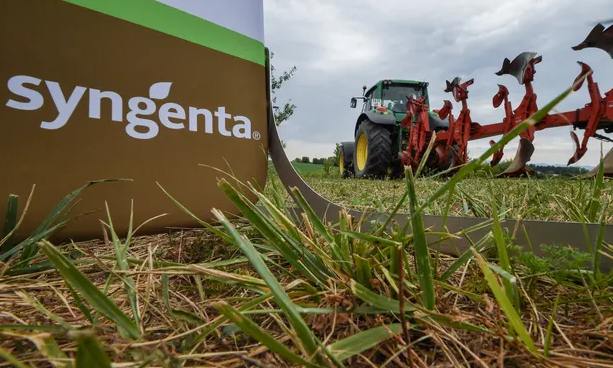May 22, 2025 | 13:36 GMT +7
May 22, 2025 | 13:36 GMT +7
Hotline: 0913.378.918
May 22, 2025 | 13:36 GMT +7
Hotline: 0913.378.918

Syngenta and Bayer rejected the accusations and said they had provided all ‘relevant’ studies. Photograph: AFP/Getty Images
The pesticide companies Bayer and Syngenta have been excoriated in a European parliament hearing after failing to disclose studies on the brain toxicity of their products.
European regulators said the companies had breached legal obligations and behaved unethically. MEPs questioning executives from the companies said their actions had been “outrageous” and represented a “scandal”. The companies rejected the accusations and said they had provided all relevant studies.
The withholding of nine brain toxicity studies from European regulators over the last 20 years was revealed by the Guardian in June, reporting findings from Swedish academics. They discovered that these toxicity studies had been submitted to the US pesticide regulator but not to the EU authorities.
“These studies are performed in order to protect our children and grandchildren from effects on brain development,” said Dr Axel Mie, of Stockholm University, who led the research.
He told a special hearing in the European parliament on Tuesday: “If a company decides by themselves which studies to disclose and which ones to withhold, it is obvious that the decisions by the [regulatory] authorities become unreliable.” He said risk management decisions had been delayed by 18 years in one case.
Officials from the European Commission, the European Food Standards Agency (EFSA) and the European Chemicals Agency (ECHA), all of which have a role in pesticide regulation, thanked Mie and his colleague Prof Christina Rudén for their “important” and “valuable” work.
“We considered [the withholding of the studies] a breach of the legal obligations of those companies and a matter of very serious concern,” said Claire Bury, the commission’s deputy director-general for health and food safety.
“All studies are essential to have available to the regulator, irrespective of the outcome of them,” said Sharon McGuinness at ECHA. “It helps us make a robust assessment and ultimately protects citizens and the environment.”
Bernhard Url, at EFSA, called the companies’ behaviour “unethical” and said: “Industry judges the relevance [of the toxicity studies] in a way that we would most likely not agree with.”
MEPs were scathing about the companies. The Swedish MEP Emma Wiesner, a member of the European parliament’s committee on the environment, public health and food safety, said: “The behaviour found in this study is really unacceptable. More than a quarter of the studies [sent to US authorities] were not sent into the European agencies – that is outrageous.”
The Lithuanian MEP Juozas Olekas said the companies had caused themselves “reputational damage”, while Martin Häusling, a German MEP and member of the agriculture committee, said: “This is a right old scandal. These [are] clear breaches of existing law and previous law. And yet there are no consequences.”
The power to impose penalties on companies for breaching regulatory requirements lies with individual member states of the EU, and not with the commission, unlike in cases of breaches of competition law and data protection for example. However, no country is known to have ever imposed such a penalty.
Ruden said: “We were not able to identify any legal risks that the company runs when withholding a toxicity study from EU authorities. Companies are allowed to make money at the expense of public health protection.”
Dr Cristina Alija, from Bayer, told the hearing: “Bayer has always acted responsibly and transparently to provide the required data for a complete safety assessment of our substances. We have to submit all relevant data and this is what we did.”
Dr Alexandra Brand, from Syngenta, said: “We did not submit [the toxicity studies] at the time to EU regulators because they were not mandatory. We determined they did not provide any new information. Our company complies with the rules. We have nothing to hide.”
New rules came into force in 2021 requiring any new pesticide study by a company to be reported to the EU when it is commissioned. However, Mie said this did not solve the problem of studies withheld in the past for pesticides still in use.
What difference the withheld studies would have made to regulations if disclosed at the start of the process is disputed. Mie said it was plausible in some cases that lower pesticide exposure limits could have been imposed years earlier. Bury said none would have been a “decisive factor” in regulatory decisions and the companies said they would have had no effect.
Mie said his research could point to far wider withholding of toxicity studies on thousands of chemicals. “We have looked at a tiny fraction of all available pesticide toxicity studies, which in turn are only a small fraction of all toxicity studies. We have no reason to believe that the problem that we have identified is restricted to that tiny fraction,” he said.
(The Guardian)

(VAN) Attempts to bring down the price of the Japanese staple have had little effect amid a cost-of-living crisis.

(VAN) Fourth most important food crop in peril as Latin America and Caribbean suffer from slow-onset climate disaster.

(VAN) Shifting market dynamics and the noise around new legislation has propelled Trouw Nutrition’s research around early life nutrition in poultry. Today, it continues to be a key area of research.

(VAN) India is concerned about its food security and the livelihoods of its farmers if more US food imports are allowed.

(VAN) FAO's Director-General emphasises the need to work together to transform agrifood systems.

(VAN) Europe is facing its worst outbreak of foot-and-mouth since the start of the century.

(VAN) The central authorities, in early April, released a 10-year plan for rural vitalization.